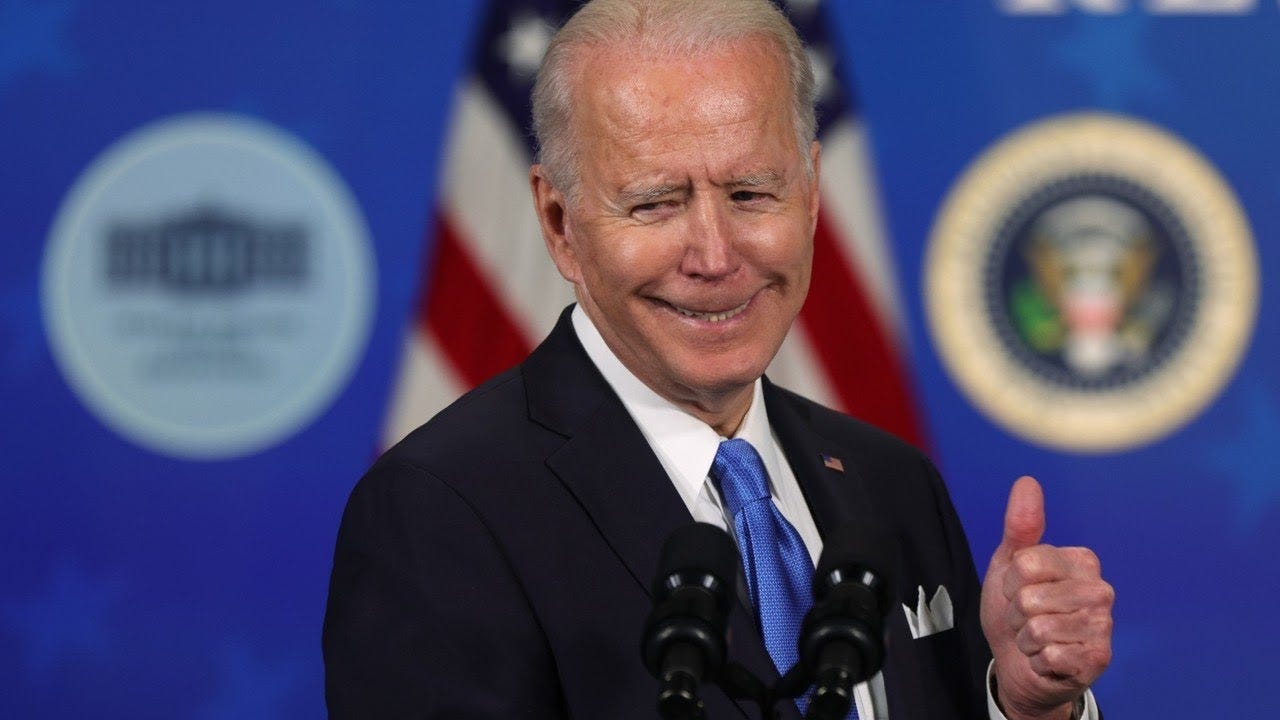Elizabeth Nolan Brown is a senior editor at Reason and the main author of Reason's morning newsletter, the Reason Roundup – an essential part of my daily reading.
This week we take her recent article on the news of Biden’s unilateral action canceling billions of dollars of student loan debt. Elizabeth calls it a fiasco, and she’s hardly alone in this sentiment. Even President Obama’s former economic adviser Jason Furman has called the plan “reckless.”

Transcript
It has been observed that this executive action was more economically consequential than any other taken by a President in our 240-year history.
What does “executive action” mean? It means no input from Congress, no input from anybody – he just unilaterally did it because he had promised to do it.
The effect on our economy, on our collective morality, on the individuals whose debt is forgiven, and upon the individuals whose debt was not forgiven is profound and uncharted.
Where did President Biden get the congressional power to take the action that he took?
Typically, this would have to be undertaken by Congress – the body with the authority to control federal spending – but Biden invoked this 2003, post-9/11 bill called the Higher Education Relief Opportunities for Students Act, signed by George W. Bush.
It permits the Secretary of Education to waive or modify Federal Student Financial Assistance Program requirements, to help students and their families or academic institutions affected by war, other military operations, or national emergency. It was supposed to help people who were fighting the Bush-era War on Terror, but now Biden is counting the COVID-19 pandemic as a national emergency and is saying that this bill gives him the right to get rid of financial aid or student loan obligations.
Will it hold up in Court, or will it be struck down like the eviction moratorium? In the latter case, Biden knew it was going to be struck down, but it was in effect long enough to make good on his promises to the regressive left.
Opinions are mixed and whether this will hold up or not. My colleague, Damon Root, wrote that his justification stretches the interpretation of a law that was written for totally different circumstances. Biden may be hoping that it will pass muster, or that if it doesn't, it will at least pass legal muster long enough for it to affect the midterm elections. It could stretch out for years in courts, and Biden will still be able to say, “Well, I tried to do this good thing, but other people blocked me.”
What's the economic effect of this forgiveness?
It will wipe out up to $10,000 for some people and up to $20,000 for others making under $125,000 per year.
This could result in millions of people having their student loans wiped out to the tune of hundreds of billions of dollars. The government isn't directly cutting a check, but they won't be getting a lot of the money lent by federal lenders. The biggest worry is that it's going to be inflationary.
It’s also going to give colleges more incentive to raise prices, since people are going to think now, “Well, whatever – if I take out these bigger student loans, then I will probably just get them written off too.” As a result, colleges can just raise their education prices even higher.
What's the effect of this forgiveness on those who didn’t have loans?
There are also a lot of people either didn’t get loans or paid them off quickly through sacrifices. Maybe they chose to go to a less expensive school, or lived at home instead of in the dorms.
There's been a tendency to characterize opposition to forgiveness as selfish, but I don't think that's really what these people are saying. They're just saying that they gave up certain opportunities, like going to the fancy school, living in an expensive city after graduation, or participating in research related to their field instead of working for pay. They've forgone networking opportunities and professional contacts, which means that they've been put at a potentially lifelong career disadvantage relative to people who made different decisions with loans. They're now competing for jobs with these people who have these other advantages because of their student loans. It seem’s like such a smack in the face to these people.
This isn't even going to the poorest people, who couldn't go to college – this is going to people who have gone to college and are making up to $125,000 a year. Someone who's making $125,000 a year can afford a few $100 a month in student loan payments.
Who will be the winners and losers of this action?
Democrats and the Biden administration are going to score political points, because they're essentially buying goodwill by writing off people's debts. The people that are going to be harmed are future students, and our educational system in general. It's creating very bad incentives that will keep perpetuating higher and higher costs, and ultimately make everything more expensive in the long run. We are just going to keep subsidizing it, and creating a vicious feedback loop.
Read Elizabeth’s daily column, The Reason Roundup and follow her on Twitter @ENBrown.
Links & Resources:
The Student Loan Forgiveness Fiasco, by Elizabeth Nolan Brown, Reason Magazine
Will Biden's student loan debt cancellation plan hold up in court? by Damon Root















The Student Loan Debt Fiasco